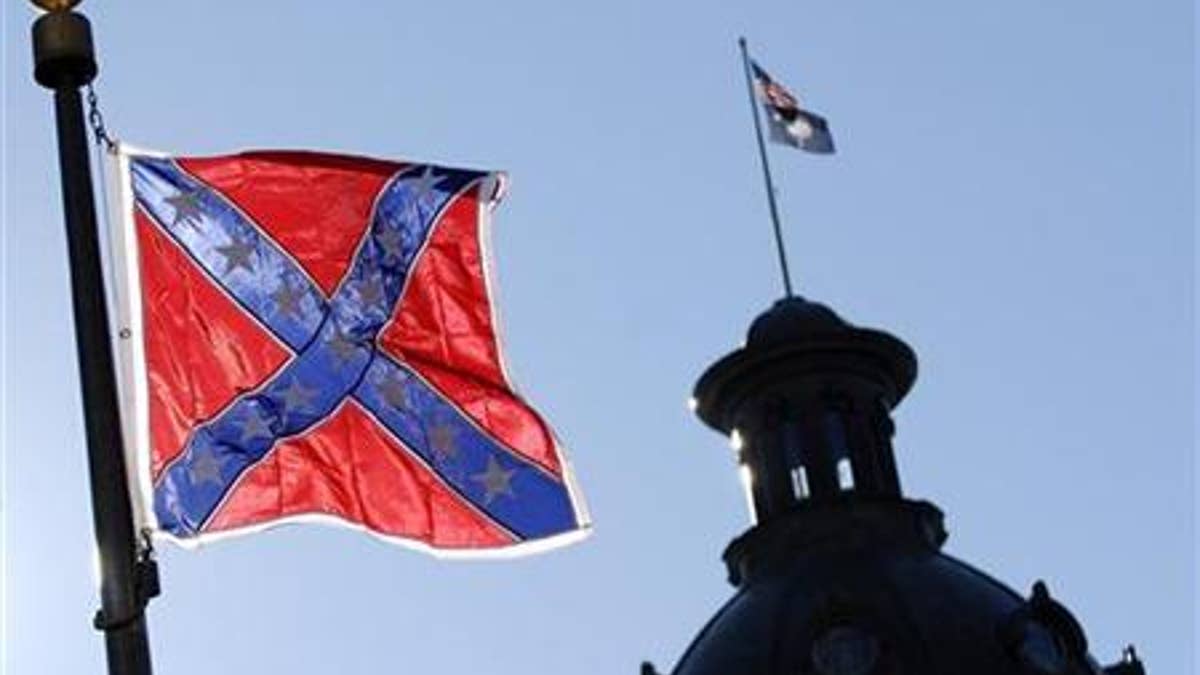
(Reuters)
South Carolina Gov. Nikki Haley isn't retreating from her decision to keep the Confederate flag atop the north end of the Statehouse in Columbia despite complaints from the NAACP, whose president this week said the ethnic minority governor is a "contradiction" for allowing the flag to fly.
Speaking to a crowd at an NAACP national conference in Los Angeles on Monday, NAACP President Benjamin Jealous attempted to shame Haley into removing the flag by comparing African American slavery to oppression Haley's ancestors in India faced under British rule.
"Perhaps one of the most perplexing examples of the contradictions of this moment in history is that Nikki Haley, South Carolina's first governor of color, continues to fly the Confederate flag in front of her state's capitol. Given the similarities between our struggles to end slavery and segregation, and her ancestors' struggle to end British colonialism and oppression in India, my question to Governor Haley is one that Dr. King often asked himself: 'What would Gandhi do?'" Jealous said.
The flag has been at the north end of the Statehouse since 2000. It was moved there after legislation passed in response to protests and an NAACP boycott of the state over the flag's position atop the dome of the Statehouse, where it was placed in 1962 by an all-white South Carolina Legislature.
Haley was born in South Carolina, and her spokesman said the decision lies with the people of the Palmetto State.
"More than a decade ago, under the leadership of a Democratic governor, South Carolinians Republican and Democrat, black and white, came to a compromise position on the Confederate flag," said Haley press secretary, Rob Godfrey.
"Many people were uncomfortable with that compromise, but it addressed a sensitive subject in a way that South Carolina as a whole could accept. We don't expect people from outside of the state to understand that dynamic, but revisiting that issue is not part of the governor's agenda," Godfrey said.
The NAACP boycott remains in place as a protest to the decision to keep the flag beside a monument honoring fallen Confederate soldiers. Opponents say the flag should be removed completely from Statehouse grounds because it represents slavery and white supremacy.
The National Collegiate Athletic Association has also refused to hold any tournaments in the state since 2001, as long as the Confederate flag continues to fly there.
But others say the flag is a reminder of an important part of South Carolina's history, not to mention that it doesn't violate any laws.
"There is nothing more sacred in the country than the First Amendment. If someone wants to raise that flag then they have the First Amendment right to do so," said attorney Richard Roth of The Roth Law Firm, PLLC in New York City.
Roth, who has argued several First Amendment cases before the federal courts, noted that South Carolina is the only state with any legal limitation on flying the Confederate flag.
"It may not be good for business and it may not be good for a general character and reputation, but legally you have every right to fly any flag," said Roth.











































